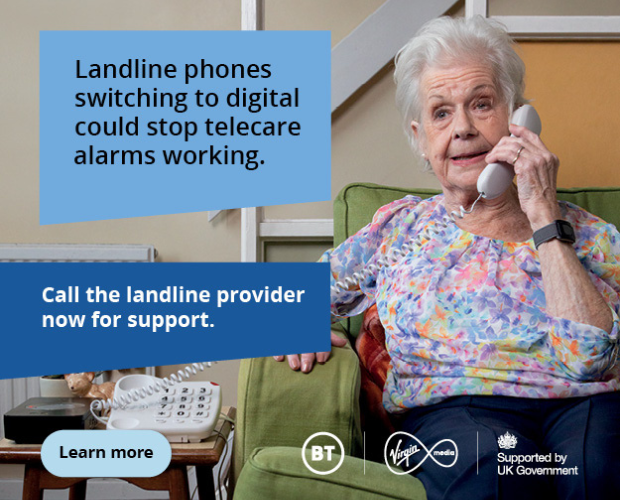T: 01822 851370 E: [email protected]
Visit RSN Survey about life in rural England to find out more.
The UK’s landline infrastructure is transitioning from analogue to digital, which may impact Telecare alarms used by older and vulnerable residents. This switchover is already underway, and action is needed now to ensure continuous Telecare support. If you or someone...
The Rural Services Network (RSN) is pleased to share that we held two highly successful BT Digital Switchover information sessions last week. These exclusive RSN membership events engaged over 260 delegates, including representatives from town, district, and county councils across...
The Rural Services Network, in partnership with BT, is pleased to announce an important event designed specifically for Local Authority Councillors to raise awareness about the upcoming digital telephone line switchover. Due to high demand and the initial session selling...
BT Group has announced significant adjustments to its digital switchover programme, which aims to transition the UK's traditional analogue landlines to digital Voice over IP (VoIP) technology by January 2027. The revised approach will result in a single switch for...
BT have announced that they are temporarily pausing all non-voluntary, managed migrations to a digital landline where there is any risk that the customer’s telecare service will not continue to work. In a blog on their website BT say: ...
NEWSLETTER
Sign up to receive all our latest news and updates.
HOT TOPICS
Amid reduced public spending, fair resource allocation across regions is crucial. Despite a population larger than Greater London, rural areas receive significantly less funding for essential services, even though delivering these services in rural areas is more expensive.
Economic growth is widely acknowledged as essential for national wealth and prosperity and is a priority for political parties. Rural economies, employing millions and home to a higher proportion of small businesses, have potential for growth if barriers are removed.
Rural residents face distinct healthcare challenges, including limited access to transport, longer distances to medical facilities, an aging demographic, housing inadequacies, digital connectivity gaps, and difficulties recruiting health and care workers.
Rural communities are grappling with a severe affordable housing crisis, marked by high house prices, a lack of affordable housing, elevated living costs, and lower incomes, threatening their sustainability and vitality.
Transport is vital for the quality of life and economic health of rural areas, yet it faces challenges such as infrequent public bus services and less Government funding compared to urban regions.
Rural areas, encompassing a substantial portion of England's population and land, play a pivotal role in combating climate change and achieving the net zero target.
In an increasingly digital world, the lack of robust digital infrastructure in rural areas severely limits access to crucial services and stifles economic growth.
A future-focused vision for rural communities involves not just building the right homes in the right places but also ensuring thriving, sustainable communities.
SIGN UP TO OUR NEWSLETTER
Sign up to our newsletter to receive all the latest news and updates.







